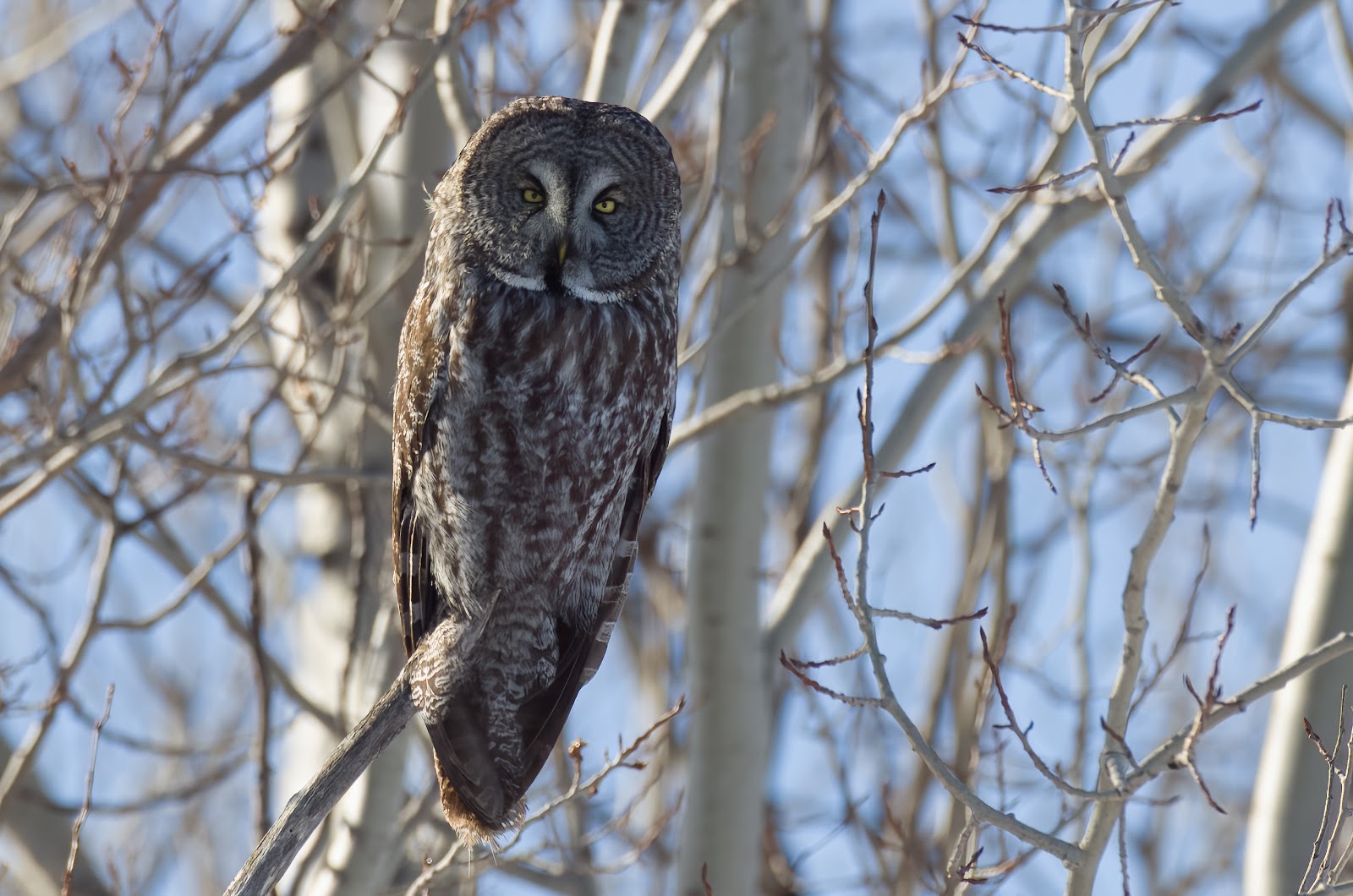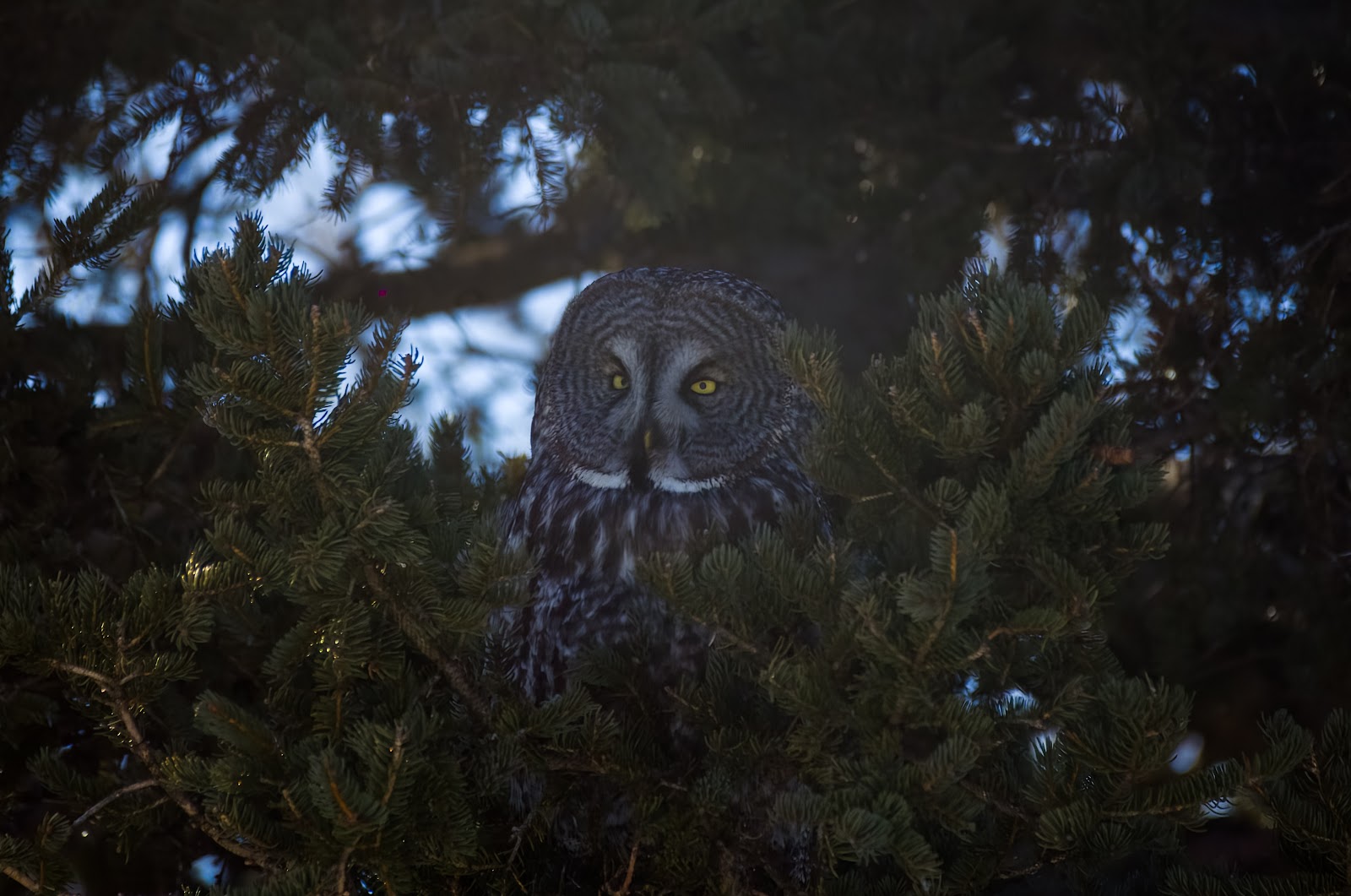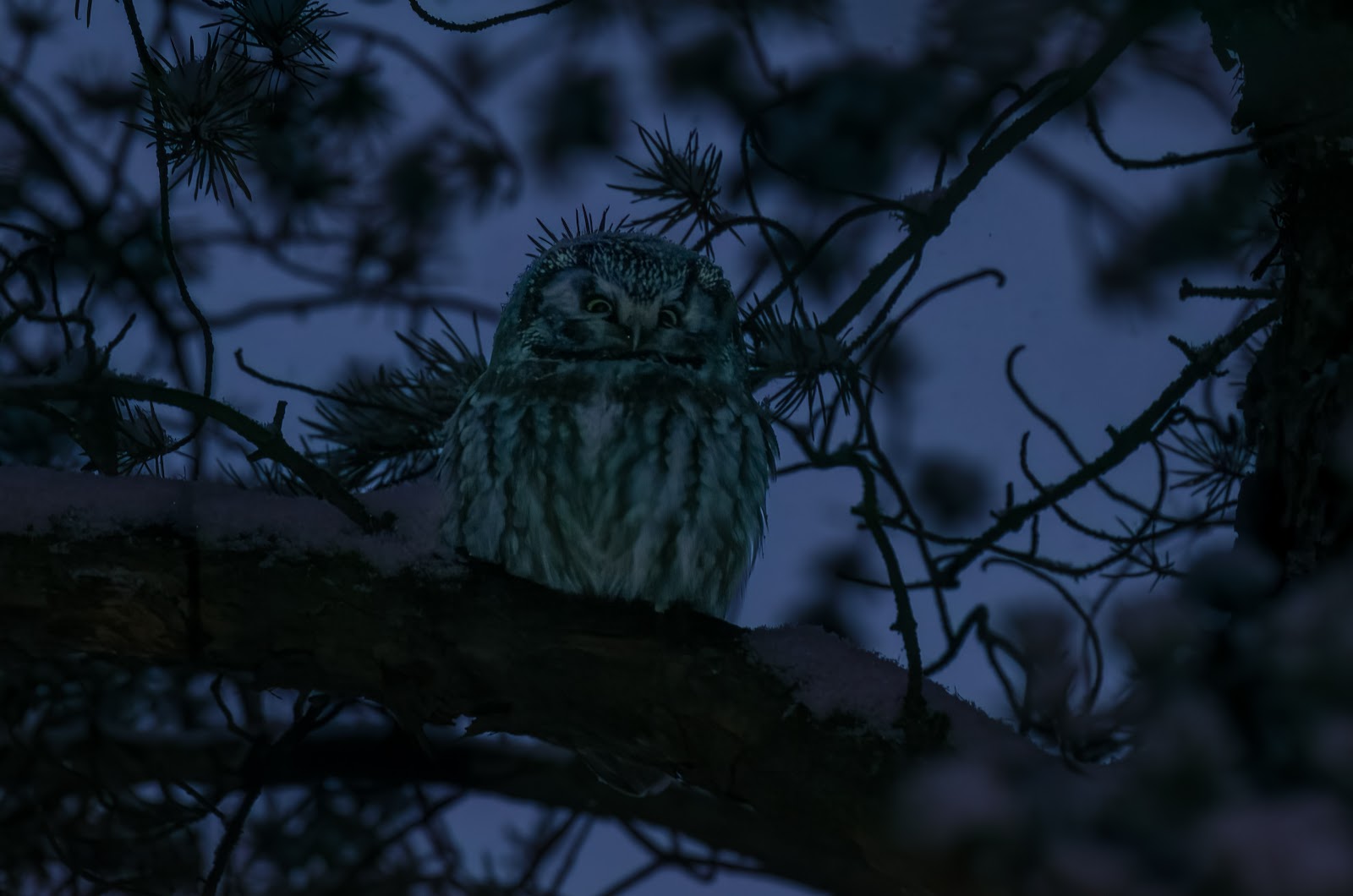NATURE MONCTON NATURE NEWS
March 20, 2025
Nature Moncton members as well as any
naturalist in New Brunswick or beyond are invited to share their photos
and descriptions of recent nature sightings to build a fresh (almost) daily
edition of Nature News
To respond by e-mail, please address your message to the
information line editor, nelsonpoirier435@gmail.com .
Please advise the editor at nelsonpoirier435@gmail.com
and proofreader Louise Nichols at Nicholsl@eastlink.ca if
any errors are noted in wording or photo labelling.
For more information on Nature Moncton, check the website
at www.naturemoncton.com.
Proofreading courtesy of Louise Nichols
**At the end of February, Jackie Eindhoven and Andrew
Darcy headed on a mission to Quebec City to take in the spectacular owls that
were hanging around the city this year. This year has been the biggest
irruption of the great gray owl, boreal owl, and northern hawk owl in two
decades. These ghosts of the Boreal Forest typically head south from their
breeding grounds every 4-5 years or so in response to fluctuations in prey
availability. The red-backed vole is a favourite food of these northern owl
species, and when numbers of this primary prey species are low due to cyclical
population crashes, the owls head south to find food.
Jackie and Andrew had the pleasure of viewing a spectacular great
gray owl and an adorable little boreal owl on their trip. Both
species were lifers for both of them. The great gray owl was hanging around a
big open field area north of the city and often perched precariously on
surrounding shrubs and trees. Being Quebec City, there was a significant amount
of snow on the ground, and as such, navigating the waist-deep snow at points
was no easy task! But well worth it in the end.
The adorable little gremlin, aka boreal owl, was hiding
out at a local park right in the heart of the city. They checked a small pine
stand near the parking lot. Hope and light were quickly fading as they approached
the end of the stand. But as they neared the last trees, Jackie called out
excitedly, and as Andrew turned around, there it was!!! Just snoozing away on a
lower branch fully out in the open. They were both super excited!! They watched
the owl for an hour or so as the snow began falling heavily; it awoke from its slumber and glared at the fan club that was there to see him. The owl didn't
seem concerned with them much at all but did cock its head and look up and
around when it heard birds fly over (perhaps thinking it was a predator?). It
was very dark by the time it fully woke up, but they did get to see it hop
around from branch to branch as it planned its evening forays.
**Many may have seen the report about the turmoil that
resulted when 13 big brown bats appeared in a classroom in a school in Plaster
Rock.
Don McAlpine did an interview on the incident, which was
very informative. The taped show can be navigated at https://www.cbc.ca/listen/live-radio/1-38-maritime-noon
The interview is one of three during the March 19 episode. I
was not able to create a link to go directly to it, but the rest of the show is
interesting as well.
**Frank Branch got a photo of a great
cormorant Wednesday afternoon in Grand-Anse.
(Editor’s note: note the large blocky head, white throat,
and yellowish throat pouch to help distinguish it from the double-crested cormorant.
The great cormorant also would show distinct white flank patches in flight.)
The bay was ice-free except along the shore, and the Black-legged
Kittiwake were already at their nesting site.
(Editor’s note: this nesting colony is of significant
size and is the only black-legged kittiwake colony on the mainland coast of New
Brunswick.)
**Jane LeBlanc in St. Martins had a small mixed flock of
red-winged blackbirds and common grackles at her feeder today. She also got a documentary photo of a fox
sparrow, which is the first she's seen this year. She notes a neighbour in
the village has had fox sparrows all winter.
**Pat Gibbs photographed an American Crow just outside
her Moncton yard on Wednesday. It appears to be showing some leucism.
**The adult male red-winged
blackbirds are moving inland fast. Bob Blake reports that four arrived at his
yard in Second North River on Wednesday.
Nelson
Poirier
Nature Moncton












